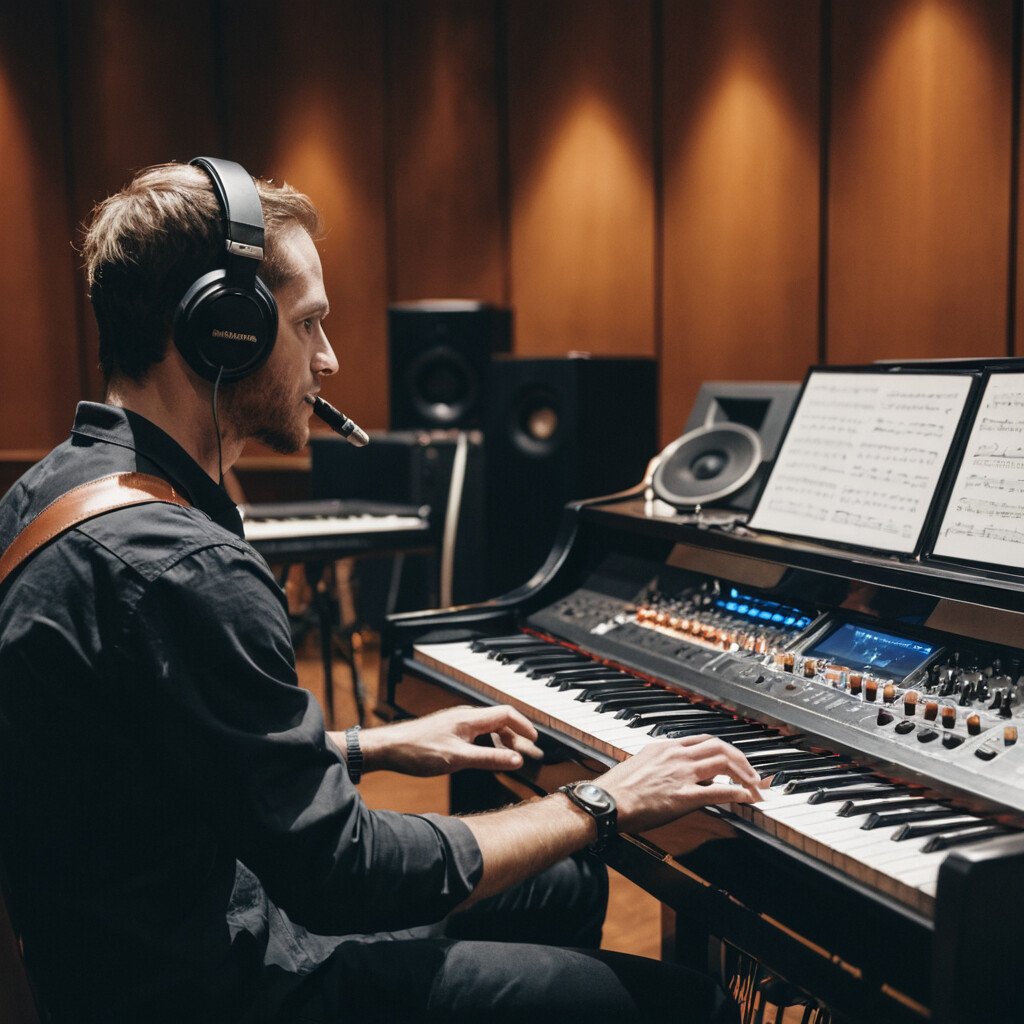
Learning a musical instrument is a rewarding journey, providing both personal fulfillment and a host of psychological and social benefits. Whether you’re aiming to become a professional musician or just looking to enjoy music as a hobby, there are universal steps and principles that can help you master any instrument. In this article, we’ll explore practical tips, effective learning strategies, and resources for mastering any musical instrument, from beginner to advanced levels.
Why Learn a Musical Instrument?
Before diving into the practical aspects, it’s worth reflecting on why learning a musical instrument is so valuable. Music touches all aspects of life, and here are some of the key benefits:
- Cognitive Enhancement: Studies show that playing music enhances memory, improves coordination, and even increases IQ over time.
- Stress Relief: Playing an instrument can act as a meditative activity that reduces anxiety and stress levels, helping you relax and unwind.
- Emotional Expression: Music is a powerful medium for expressing emotions, offering an outlet to channel creativity.
- Social Connectivity: Whether playing in a band, an orchestra, or jamming with friends, music brings people together, fostering strong social bonds.
With these benefits in mind, let’s look at how you can successfully learn any instrument, no matter your starting point.
1. Choose the Right Instrument
The first step in learning music is selecting the right instrument. Here are a few things to consider:
- Interest and Passion: Pick an instrument that excites you. Passion will fuel your practice and help you overcome challenges.
- Physical Comfort: Some instruments require certain physical attributes. For instance, wind instruments demand strong breath control, while string instruments require finger dexterity.
- Sound Preference: Think about the type of music you enjoy and the sound of the instrument. Do you like the mellow tones of a piano, or are you drawn to the energetic vibe of electric guitars?
- Accessibility: Some instruments are more affordable and easier to access than others. Beginners might want to start with instruments that are relatively inexpensive to learn on.
Once you’ve selected an instrument, the real work begins!
2. Set Realistic Goals
Learning an instrument is a long-term commitment, so it’s crucial to set realistic goals from the start. This approach helps maintain motivation and ensures steady progress. Start by defining short-term goals (learning a song, mastering scales) and long-term goals (playing in a band, reaching an advanced level).
- SMART Goals: Your goals should be Specific, Measurable, Achievable, Relevant, and Time-bound. For instance, instead of saying, “I want to play the piano,” set a goal like, “I will learn to play ‘Fur Elise’ within three months.”
- Track Your Progress: Keep a practice journal to monitor how much time you spend practicing and which techniques or pieces you’re working on.
3. Create a Consistent Practice Routine
Consistency is key when learning any instrument. It’s more effective to practice a little bit every day rather than having long sessions infrequently.
- Daily Practice: Aim for at least 20-30 minutes of focused practice daily. For beginners, short, regular sessions are better for developing muscle memory and staying motivated.
- Warm-Ups: Start each session with warm-up exercises to loosen your muscles and prepare your mind. For example, if you’re learning the guitar, play scales or finger exercises to enhance dexterity.
- Break Down Difficult Passages: Don’t get overwhelmed by complex music pieces. Break them into smaller parts and work on each section slowly before combining them.
4. Use Effective Practice Techniques
To get the most out of your practice, employ techniques that promote deeper learning and retention.
- Slow Practice: Beginners often rush through pieces, which leads to mistakes. Instead, slow down. Playing slowly helps you understand the music and build accuracy.
- Repetition: Repetition solidifies muscle memory. Focus on repeating tricky passages multiple times until they feel natural.
- Active Listening: Listen to recordings of professionals playing the same instrument. Pay attention to their technique, style, and tone, and try to emulate these qualities in your own practice.
- Play Along with a Metronome: Timing is critical. A metronome helps you maintain consistent rhythm and teaches you how to stay in time, which is fundamental in music.
5. Overcome Common Challenges
Learning an instrument comes with challenges, especially in the early stages. Here are some common obstacles and how to overcome them:
- Frustration with Progress: It’s common to feel stuck at certain points, especially when learning difficult techniques. Break the task into smaller, manageable goals and celebrate small wins along the way.
- Finger Pain or Fatigue: When learning instruments like guitar or piano, finger pain is normal initially. Make sure you’re using proper technique, and don’t push through pain. Build strength and endurance gradually.
- Plateauing: As you progress, you might reach a point where you feel like you’re no longer improving. During these times, try learning new pieces or experimenting with different genres of music to reignite your passion and challenge yourself in new ways.
6. Find a Good Teacher or Online Course
While self-learning is possible, having a mentor can significantly accelerate your progress. A teacher can provide personalized guidance, correct mistakes, and offer motivation when things get tough.
- In-Person Lessons: One-on-one lessons allow for tailored feedback and hands-on instruction. A teacher can observe your technique and make real-time adjustments.
- Online Courses: If you prefer learning on your own schedule, there are excellent online platforms that offer structured music lessons. Websites like Udemy, Skillshare, and Coursera provide comprehensive lessons for a wide range of instruments.
- YouTube Tutorials: YouTube offers countless free tutorials, but the quality varies. Seek out reputable channels with well-organized lessons and step-by-step instructions.
7. Take Advantage of Learning Resources
There are many great tools and resources available that can support your learning.
- Mobile Apps: Apps like Yousician and Simply Piano guide you through songs and provide real-time feedback. Other apps, such as Ultimate Guitar and Piano Maestro, are useful for learning specific instruments.
- Sheet Music and Tabs: For beginners, learning to read sheet music or guitar tabs is essential. Websites like Musicnotes and Ultimate Guitar offer an extensive collection of sheet music and tabs for all levels.
- Backing Tracks: Playing along with backing tracks can improve your timing and help you practice playing with a band. Websites like JamKazam and YouTube have a variety of free backing tracks to use.
8. Psychological and Emotional Benefits of Playing Music
Learning to play an instrument isn’t just about technical skills—it also offers numerous psychological benefits. Studies have shown that music positively affects the brain by improving mood, reducing anxiety, and enhancing cognitive function. Here’s how:
- Boosts Memory: Learning an instrument involves memorizing notes, rhythms, and scales, all of which strengthen memory. Musicians tend to have better long-term memory and recall skills.
- Enhances Coordination: Playing an instrument, especially one that requires both hands (like piano or drums), enhances hand-eye coordination.
- Improves Focus and Discipline: Consistent practice instills discipline and teaches focus, skills that can be applied to many areas of life.
- Increases Emotional Intelligence: Music helps people express emotions and develop empathy. Playing music allows you to interpret emotional nuances and connect with others on a deeper level.
9. Develop a Performance Mindset
For many musicians, performing is an integral part of their journey. Even if your goal is not to play in front of an audience, learning how to perform confidently is a valuable skill.
- Start Small: Begin by performing in front of family or friends to build your confidence.
- Record Yourself: Recording your practice sessions is an excellent way to critique your performance and identify areas for improvement.
- Mindset: Treat mistakes as learning opportunities. Every performance will have its imperfections, but they are stepping stones to mastering your instrument.
10. Never Stop Learning
No matter how advanced you become, there’s always something new to learn. Music is a vast and evolving field, and continuing to challenge yourself is essential for growth. Stay curious, explore new genres, and embrace the joy of lifelong learning.
Conclusion
Learning a musical instrument is one of the most fulfilling activities you can undertake. Whether you’re a complete beginner or seeking to refine your skills, the key to success is consistency, patience, and a passion for music. By following these practical tips, setting realistic goals, and taking advantage of available resources, you’ll be well on your way to mastering any instrument.
So, what are you waiting for? Pick up that guitar, sit at the piano, or dust off those drums—your musical journey awaits!
